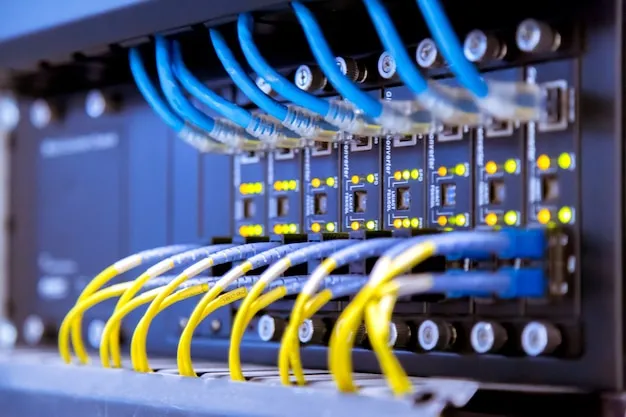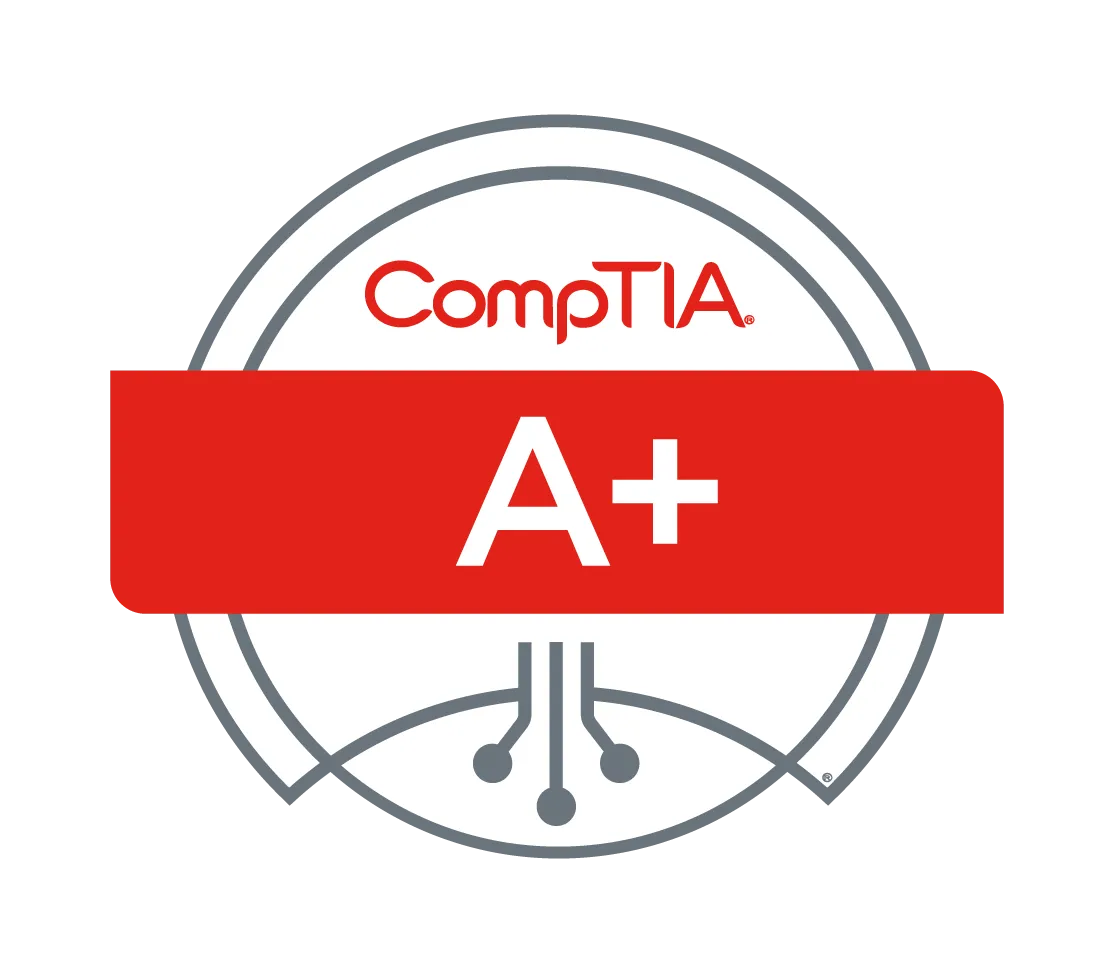The following module or modules make up the Networking Training Course:
Module 1: Cisco CCNA ( Switching & Routing ) Training Course N150,000.00 3 months
Module 2: CompTIA Network + Certification Training Course N150,000.00 3 months
The SGL Networking Training Course is ideal for individuals who have studied computer engineering in the past, have a foundational understanding of computer operations, and wish to progress to connecting computers and peripherals to exchange documents and other data.
Module 1: Cisco CCNA ( Switching & Routing ) Training Course N150,000.00 3 months
The vendor-based CCNA program equips you with the skills and knowledge needed for associate-level positions in IT technology.
The Cisco Certified Network Associate program gives you the skills you need to advance your networking knowledge in the rapidly evolving field of information technology.
The CCNA scope includes IP services, automation, programmability, security, and networking foundations. It attests to your competence in operating and maximizing the most cutting-edge networks.
Course outline
- Explaining the operation of a network
- Setting up, testing, and debugging a switch using interswitch communications and VLANs
putting in place IP services and an IP addressing system in a medium-sized enterprise branch office network to satisfy network needs - Setting up, checking, and resolving fundamental router functionality and routing on a Cisco device
- Describing and choosing the proper administrative responsibilities needed for a WLA
- Recognizing potential network security risks and outlining general countermeasures
- Installing, confirming, and debugging ACLs and NAT in a medium-sized Enterprise branch office network
WAN link implementation and verification
The breakdown of the CCNA test is as follows: Fundamentals of networks (20%): Fundamentals of virtualization, switching, wireless, IPv4 and IPv6 setup, physical interfaces and cabling kinds, network topology designs, routers, switches, and access points.
Objectives
- Implement IPv4 and IPv6 addressing techniques, establish basic local area networks (LANs), and configure routers and switches to a basic degree.
- To enable end-to-end communication between far-off devices and to offer access to both local and remote network resources, configure switches, routers, and end devices.
- Learn how to use Cisco Packet Tracer and real hardware to solve challenges and exercise critical thinking.
Configure and troubleshoot connections on a small network using security best practices.
Roles of Network Engineers
A network engineer is a specialist who creates and maintains networks within or between enterprises. They offer support to customers, suppliers, workers, or clients. For this reason, they need to be skilled in troubleshooting and able to work with others to identify answers.
With the globe becoming increasingly reliant on the internet and cloud services, network engineers are more crucial than ever. Network engineers, often called network architects, plan, develop, oversee, and debug computer networks.
A network engineer’s various responsibilities include the following:
• Creating and implementing a network infrastructure in compliance with organizational guidelines.
• Configuring and maintaining network hardware, such as routers, switches, and firewalls.
• Monitoring network performance, availability, and system reliability.
• Examining and resolving network-related hardware and software problems.
• Collaborating with other IT experts to design and implement network security measures.
• Consistently updating both the hardware and software on the network.
• Documenting protocol changes, installations, and operations on networks.
• Providing support and network engineering training to other team members.
• Network specialists and administrators manage daily operations while network architects and engineers design and build intranets, wide area networks (WANs), and local area networks (LANs).
• The decision-makers are network engineers.
Job Opportunities
Due of its wide tech background, the computer networking area has a lot of job prospects. For instance, as stated below, certain professions concentrate on helping network users, while others manage networks:
Information systems manager, network technician, network administrator, computer systems analyst, help desk technician, junior network administrator, network analyst, network architect, and network engineer
- You must first complete the Certificate in Networking program in order to work as a computer networking specialist.Network engineers work where?The knowledge of a network engineer is essential in many industries. Here’s an overview of some of the sectors in which network engineers are having an influence:Telecoms and information technology (IT)
Governmental Services: Financial, Health, and Education
IT businesses
Benefits
1. You will qualify for the Cisco Certified Network associate program (CCNA)
2.You will also earn the certificate for the Networking program
3. Recommendation to prospective employers
Module 2: CompTIA Network + Certification Training Course N150,000.00 3 months
The CompTIA Network+ certification training course presents the core skills and ideas required on the job in any sort of networking vocation, building on your prior user-level knowledge and experience with networks and operating systems for personal computers. You stand to gain from attending this instructor-led course in two ways. It will assist you in preparing for the CompTIA Network+ test (test N10-008), and it may also be beneficial for a job in networking that deals with installation, maintenance, and troubleshooting of networks. The foundational networking knowledge and abilities needed to succeed in a networking job are covered in this learning course.
Objectives
- In this Network+ training course, you will describe the major networking technologies and systems of modern networks, and be able to configure, manage, and troubleshoot modern networks.
- Identify basic network theory concepts and major network communications methods.
- Describe bounded network media.
- Identify unbounded network media.
- Identify the major types of network implementations.
- Identify TCP/IP addressing and data delivery methods.
- Implement routing technologies.
- Identify the major services deployed on TCP/IP networks.
- Identify the infrastructure of a WAN implementation.
- Identify the components used in cloud computing and virtualization.
- Describe basic concepts related to network security.
- Prevent security breaches.
- Respond to security incidents.
- Identify the components of a remote network implementation.
- Identify the tools, methods, and techniques used in managing a network.
- Describe troubleshooting of issues on a network.
Prerequisites
- Working knowledge of basic networking
Benefits:
- programs for Network+ certified by CompTIA
- Included are practice questions, laboratories, a study guide, and a ticket for the CompTIA Network+ test.
- With one-on-one instructor tutoring following the course, you may keep learning and take on new challenges.
Course outline
Networking Fundamentals
- Open Systems Interconnection (OSI) model layers and encapsulation concepts
- Characteristics of network topologies and network types
- Types of cables and connectors and explain which is the appropriate type for a solution
- Configuring a subnet and using appropriate IP addressing schemes given a scenario
- Common ports and protocols, their application, and encrypted alternatives
- Applications and purpose of network services
- Basic corporate and data center network architecture
- Cloud concepts and connectivity options
Network Implementations
- Various devices, their features, and their appropriate placement on the network
- Routing technologies and bandwidth management concepts
- Configuring and deploying standard Ethernet switching features given a scenario
- Installing and configuring the appropriate wireless standards and technologies given a scenario
Network Operations
- Use the appropriate statistics and sensors to ensure network availability
- Use organizational documents and policies
- Navigate high availability and disaster recovery concepts and summarize which is the best solution
Network Security
- Common security concepts
- Common types of attacks
- How to apply network hardening techniques given a scenario
- Remote access methods and security implications
- The importance of physical security
Network Troubleshooting
- Network troubleshooting methodology
- Troubleshooting common cable connectivity issues and selecting the appropriate tools
- Using the appropriate network software tools and commands
- Troubleshooting common wireless connectivity issues
- Troubleshooting general networking issues, given a scenario
Overview
The Network+ certification from CompTIA is accepted all across the world. This certification in networking credentials is vendor-neutral and attests to one’s ability to build, configure, manage, and troubleshoot IT networks.
Under the CompTIA Network+ framework, the CompTIA Network+ course imparts the necessary information and abilities to become a certified IT infrastructure expert.
The breadth of the CompTIA Exam N10-008 curriculum is covered in this CompTIA Network+ course, including administration of wireless and wired networks, mobility, virtualization, security, protocols, standards, and troubleshooting techniques.
You will acquire the abilities and information necessary to pass the CompTIA Network+ certification exam and become a qualified IT (Information Technology) infrastructure expert.
The vendor-neutral, internationally renowned CompTIA Network+ networking certification attests to the holder’s proficiency in the planning, setting up, overseeing, and debugging of IT networks.
You may be ready for the CompTIA Exam N10-008 with this CompTIA Network+ course, which covers topics like virtualization, security, mobility, protocols, standards, and troubleshooting techniques.





